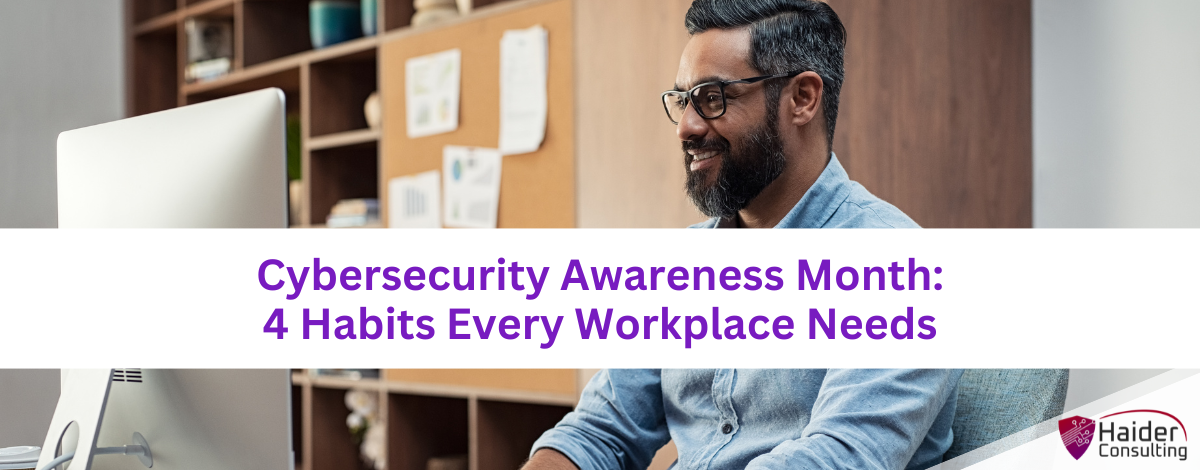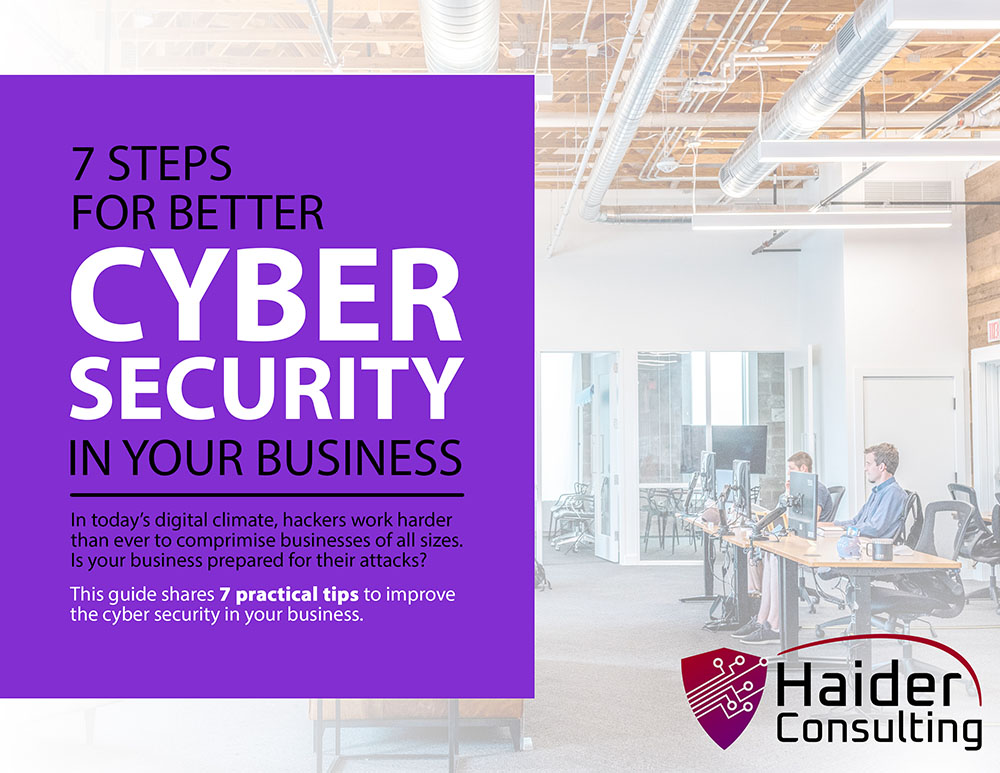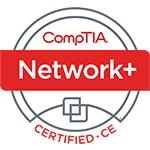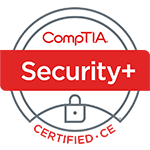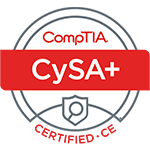October is Cybersecurity Awareness Month—the perfect time to pause and ask: How secure is my business really?
Here’s the truth: most cyberattacks don’t happen because of some genius hacker outsmarting your IT systems. They happen because of everyday mistakes—an employee clicking a phishing link, skipping a software update, or reusing a password that’s already been exposed in another breach.
The good news? You don’t need to be a tech expert to make your business safer. By focusing on a few smart habits, you can drastically lower your risk.
Here are four cybersecurity habits every workplace should adopt:
1. Communication
Cybersecurity isn’t just “an IT problem.” It’s a business problem—and that means everyone on your team needs to be part of the conversation. The more openly you talk about security, the more natural it becomes to think before clicking or downloading.
How to make it part of everyday business:
- Start staff meetings with a quick security tip, like how to spot a phishing email.
- Share real-world examples of recent scams in your industry so employees know what to look out for.
- Encourage employees to speak up if something looks suspicious—better safe than sorry.
When cybersecurity is a regular talking point, it stops feeling like “extra work” and starts becoming second nature.
2. Compliance
If your business handles sensitive data, compliance isn’t optional—it’s required. Depending on your industry, that might mean following HIPAA, PCI, FTC Safeguards, or other regulations.
But compliance is about more than avoiding fines. It’s about proving to your clients, partners, and regulators that you can be trusted with their information.
Best practices for compliance:
- Review your policies regularly to make sure they align with current rules.
- Document training, system updates, and audits so you can show evidence if asked.
- Make compliance a company-wide priority, not just something IT checks off a list.
Even if you’re not in a highly regulated industry, customers still expect their information to be protected. Falling short here can do just as much damage to your reputation as a fine.
3. Continuity
Ask yourself: If my systems went down tomorrow, how fast could I recover?
Continuity is about having a plan to keep your business running when something goes wrong—whether it’s a ransomware attack, a server crash, or even a natural disaster.
Steps every business should take:
- Ensure backups are automatic and stored securely (offsite or in the cloud).
- Test your backups regularly—don’t just assume they work.
- Have a clear recovery plan in place so your team knows what to do when systems fail.
- Run practice scenarios, like restoring a critical file, to make sure your plan actually works.
Think of continuity planning as a fire drill for your business. You hope you never need it—but if you do, being prepared makes all the difference.
4. Culture
Your employees are your first line of defense. If your workplace culture doesn’t prioritize security, even the best technology won’t protect you.
Creating a strong security culture means weaving cybersecurity into everyday habits.
Ways to build a cyber-smart culture:
- Require strong, unique passwords (or better yet, implement a password manager).
- Turn on multifactor authentication (MFA) for all accounts that support it.
- Celebrate wins—like an employee who spots and reports a phishing attempt. Recognizing good security behavior encourages others to do the same.
When security feels like a team effort instead of a burden, employees are more likely to take it seriously.
Security Is Everyone’s Job
Cybersecurity Awareness Month is a reminder that keeping your business safe isn’t just about firewalls or antivirus software—it’s about people and habits.
By focusing on communication, compliance, continuity, and culture, you’re not only avoiding threats—you’re creating a workplace where security is built into the daily routine.
Ready to Put These Habits Into Action?
Cybersecurity Awareness Month is the perfect time to assess where your business stands and strengthen your defenses. Don’t wait until an attack forces your hand.
👉 Schedule a FREE Discovery Call with Haider Consulting today. We’ll help you identify your biggest risks and map out the next steps to protect your business.
Book My 17-Minute Call